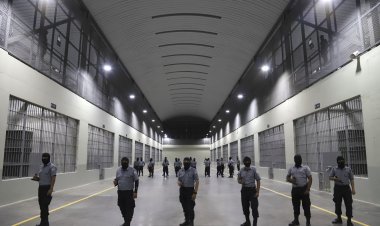Debate intensifies over California's AI safety bill
A bill concerning artificial intelligence (AI) safety in California has sparked intense discussions among technology firms, lawmakers, and the entertainment sector, with the contentious legislation poised to significantly impact AI regulation.

California Senate Bill 1047, known as the Safe and Secure Innovation for Frontier Artificial Intelligence Models Act, mandates that large AI models undergo safety tests to minimize the risks of "catastrophic harm" prior to their public launch. Additionally, the bill holds developers accountable for serious harm resulting from their models.
Introduced by California State Senator Scott Wiener, the bill successfully passed the state legislature in August. Governor Gavin Newsom has until September 30 to either sign or veto it.
Given California's trend of pioneering new technology legislation amid a lack of federal oversight, the outcome of this bill could set a precedent for AI regulation throughout the United States.
The discussions surrounding the bill have generated both enthusiastic support and sharp criticism. Proponents advocate for safe and responsible AI development, while detractors caution that the legislation may hinder innovation with impractical demands.
Hollywood has engaged in the discourse, with over 120 actors and producers signing an open letter urging Newsom to enact the bill.
"We fully believe in the dazzling potential of AI to be used for good. But we must also be realistic about the risks," reads the letter.
The Screen Actors Guild – American Federation of Television and Radio Artists, one of California's leading labor unions, sent a similar appeal to the governor.
The entertainment industry has been directly impacted by the rise of generative AI, facing challenges like AI replicas, deepfakes, and copyright issues, although SB 1047 deals with more severe threats.
Supporters of the bill also include the National Organization for Women and the Future of Life Institute, both advocating for proactive measures to address potential AI dangers and encouraging Newsom to approve the legislation.
Conversely, the tech industry is largely against the bill, with major companies and AI startups expressing concerns about the possible imposition of safety requirements on developers.
Tech giants including Google, Meta, and OpenAI, along with several associations from the tech sector, have opposed SB 1047. They argue that regulating the developmental process, rather than the harm caused by AI, could stifle innovation and weaken California's and the U.S.'s competitive edge in the AI landscape.
Particularly impacted by the bill are open model developers, who would be required to ensure that their models cannot be modified to cause harm in the future. Critics fear the legislation could have a chilling effect on the open model community and undermine the ecosystem for open model development.
Jason Kwon, OpenAI's chief strategy officer, stated in a letter that regulation regarding frontier AI should originate from the federal level rather than from the California governor. He cautioned that the bill might "stifle innovation and harm the U.S. AI ecosystem."
In addition to support from California's legislature, the bill has faced criticism from notable figures in U.S. Congress, including former Speaker Nancy Pelosi.
In a statement earlier this month, she labeled the bill as "well-intentioned but ill-informed," voicing concerns that it could hinder growth for small entrepreneurs and academic institutions.
Eight U.S. House representatives from California have also urged Newsom to veto the bill, highlighting the potential negative consequences for California's innovation economy.
Wiener, the bill's author, has defended the legislation, asserting that it would primarily impact the largest AI developers, leaving small startups unaffected.
"When technology companies promise to perform safety testing and then balk at oversight of that safety testing, it makes one think hard about how well self-regulation will work out for humanity," stated Wiener.
As the most populous state in the U.S. and a hub for many leading tech companies, California has significantly influenced policies relating to privacy, children's online safety, and social media regulation.
This year, California has enacted numerous AI-related bills, with Newsom signing eight AI bills into law last week that aim to protect Hollywood actors and prohibit deepfakes that could influence voter behavior preceding elections.
Alongside SB 1047, at least four additional AI bills await Newsom's decision.
Sanya Singh for TROIB News
Discover more Science and Technology news updates in TROIB Sci-Tech












